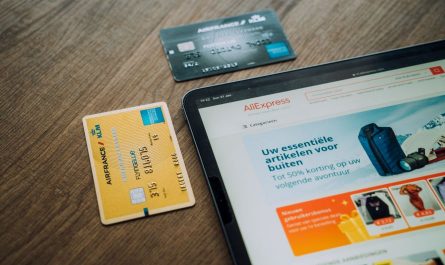When it comes to resolving disputes or issues with credit card transactions, two common terms that often arise are “chargeback” and “refund.” While both processes involve the return of funds to the cardholder, they differ in terms of the reasons for the transaction reversal, the parties involved, and the overall process. In this guide, we will delve into the distinctions between credit card chargebacks and refunds to help you understand when and how each process is used.
But before we dive into the difference between chargeback and refund, let us first see what the advantages of the Airtel credit card, availed from Airtel Finance are:
- Enjoy a 25% discount on all recharges made via the Airtel Thanks App.
- Receive a 10% discount on deliveries from Zomato, Swiggy, and Bigbasket.
- Earn a 10% cashback on utility bill payments.
- Access airport lounges throughout the year.
- Get an additional 1% cashback on all other expenditures.
- Benefit from a 1% fuel surcharge waiver on fuel transactions.
If you want to avail a credit card from Airtel Finance then download the Airtel Thanks App for the same.
Also Read: Best Credit Cards for Insurance Payment in India 2024
Understanding Credit Card Chargeback
What is a Chargeback?
A chargeback is a process initiated by the cardholder through their card issuer to dispute a transaction on their credit card statement. Chargebacks are typically used in cases of unauthorized transactions, fraud, goods or services not received, or disputes with merchants regarding the quality of products or services.
How Does a Chargeback Work?
When a cardholder initiates a chargeback, the card issuer investigates the dispute and may temporarily reverse the transaction amount from the merchant’s account. The merchant is then given the opportunity to provide evidence to challenge the chargeback. If the issuer rules in favour of the cardholder, the transaction amount is permanently reversed, and the cardholder receives a refund.
Reasons for Chargebacks:
- Unauthorized transactions
- Fraudulent activity
- Goods not received
- Services not provided as agreed
- Quality issues with products or services
Also Read: Best Credit Card Offers on Flight Tickets in 2024
Understanding Credit Card Refund
What is a Refund?
A refund is a transaction initiated by the merchant to return funds to the cardholder for a specific purchase. Refunds are commonly issued in cases where the customer is dissatisfied with a product or service, the product is defective, or the customer changes their mind about the purchase.
How Does a Refund Work?
When a merchant issues a refund, the transaction amount is credited back to the cardholder’s account. The refund typically appears as a credit on the cardholder’s statement, offsetting the original transaction amount. Refunds are usually initiated by the merchant voluntarily without involving the card issuer in the dispute resolution process.
Reasons for Refunds:
Here are some reasons for opting for a refund:
- Dissatisfaction with product or service
- Defective products
- Change of mind about the purchase
- Customer loyalty programmes
- Price adjustments
Key Differences between Chargeback and Refund
Initiator:
Chargeback: Initiated by the cardholder through the card issuer to dispute a transaction.
Refund: Initiated by the merchant to return funds to the cardholder voluntarily.
Reasons:
Chargeback: Typically used for unauthorized transactions, fraud, goods not received, or disputes with merchants.
Refund: Commonly issued for customer dissatisfaction, defective products, or changes in purchase decisions.
Process:
Chargeback: Involves a formal dispute resolution process between the cardholder, card issuer, and merchant.
Refund: Generally a straightforward process initiated by the merchant without the need for involvement from the card issuer.
Also Read: Best Credit Card Offers on International Flight Tickets in 2024
FAQs
1. When should I request a chargeback instead of a refund?
You should request a chargeback when you believe there has been unauthorized activity on your card, you did not receive the goods or services as promised, or you suspect fraud. A chargeback is a formal dispute resolution process that involves your card issuer.
2. Can a merchant challenge a chargeback?
Yes, merchants have the opportunity to challenge chargebacks by providing evidence to support their case. The card issuer will review the evidence from both parties before making a final decision on the chargeback dispute.
3. Are refunds always issued immediately upon request?
Refunds may take time to process, depending on the merchant’s policies and the payment processing system. While some refunds are processed instantly, others may take several business days to appear on your statement.
4. Do chargebacks affect my credit score?
Chargebacks themselves do not directly impact your credit score. However, excessive chargebacks or disputes may raise red flags with card issuers and merchants, potentially affecting your ability to make future purchases.
5. Can a chargeback be reversed once it has been approved?
Once a chargeback has been approved by the card issuer, it is generally considered final. Reversing a chargeback can be challenging and may require strong evidence from the merchant to support their case.
By understanding the differences between credit card chargebacks and refunds, you can navigate disputes and transaction issues more effectively. Whether you need to dispute an unauthorized charge or seek a refund for a dissatisfactory purchase, knowing when and how to initiate a chargeback or refund can help you protect your financial interests and resolve issues in a timely manner.


 Get App
Get App  Airtel Store
Airtel Store  Login
Login 

